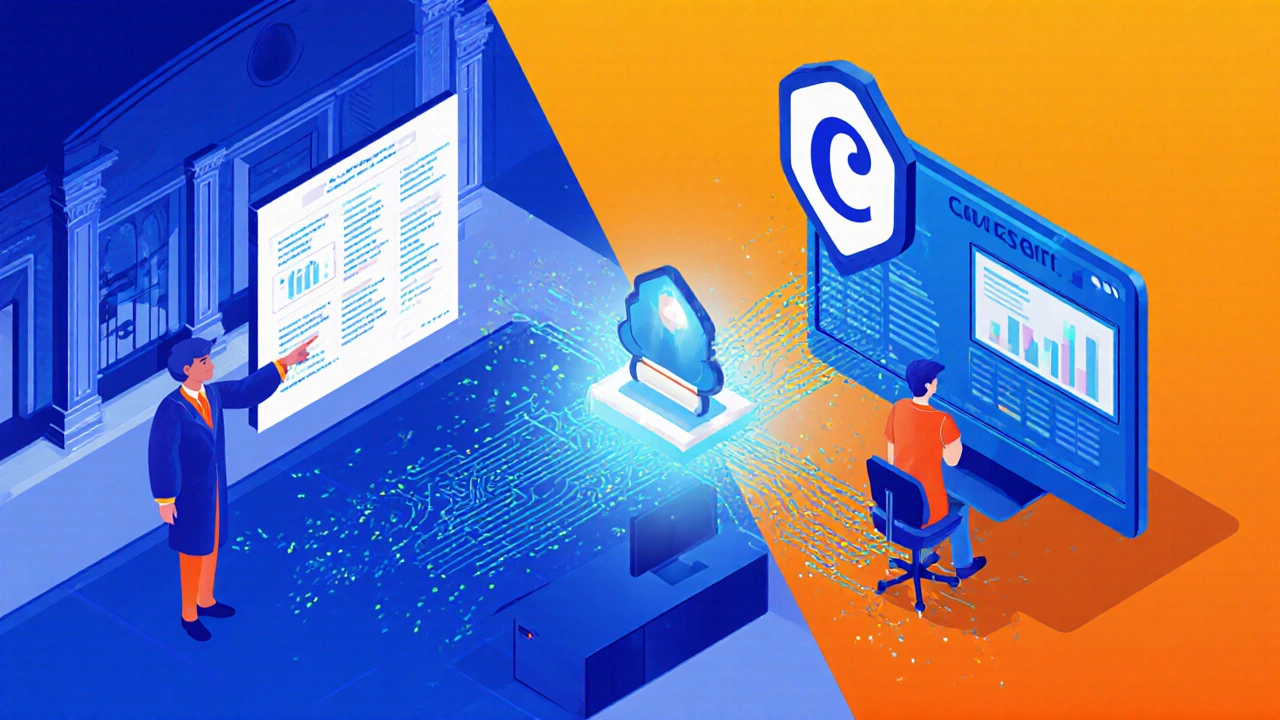Are Coursera Certificates Recognized? - Full Guide 2025

Coursera Certificate ROI Calculator
Calculate your potential return on investment for a Coursera certificate based on your industry, expected salary increase, and cost. This tool helps you determine if a Coursera certificate is worth the investment for your specific career path.
In 2024, a survey of 1,200 hiring managers revealed that Coursera certificates helped 32% of them shortlist candidates for tech and business roles. That number jumped to 38% in early 2025 as more companies embraced remote talent. So the question on everyone’s mind is simple: Are Coursera certificates really recognized, or are they just flashy wall art for your LinkedIn profile? Let’s break it down, step by step, with real‑world data, not just hype.
What exactly is a Coursera certificate?
Coursera certificate is a digital credential awarded after completing a verified course, specialization, or professional program on the Coursera platform. When you pay the verification fee, Coursera verifies your identity, grades your assignments, and issues a PDF plus a shareable badge. The badge follows the Digital badge standard, meaning you can embed it on a résumé, email signature, or social profile.
How Coursera partners with universities and companies
Coursera doesn’t create content in a vacuum. It teams up with over 250 University partners-think University of Michigan, Stanford, and the London School of Economics. These institutions design the curriculum, set grading rubrics, and sign off on the certificate text. For professional tracks, Coursera also collaborates with industry giants like Google, IBM, and Facebook, delivering what they call Professional Certificates. The partnership model guarantees that the learning outcomes match what the university or company expects from graduates.
Types of certificates you can earn
- Verified Certificate - The basic credential you get after paying the verification fee and passing all graded assessments.
- Professional Certificate - Designed with industry input, often includes hands‑on projects and a pathway to an entry‑level job.
- MasterTrack™ Certificate - A modular slice of a full university master's program. Earn up to 25% of the degree credits if you later enroll.
Do employers really care?
Yes, but the level of recognition varies by industry and role. In tech, a Google IT Support Professional Certificate helped a candidate land a junior help‑desk job at a mid‑size firm without a formal degree. In finance, a University of Illinois Business Analytics specialization is often listed as a “preferred qualification” on job ads for data analyst positions. A quick glance at LinkedIn’s “Skills & endorsements” section shows that 19% of users with a Coursera certificate have been endorsed for the same skill set by their current employers.

What about accreditation and credit transfer?
Accreditation is a tricky word. Coursera itself is not an accredited institution, but many of its courses are built by accredited universities. When you earn a MasterTrack™ Certificate, the issuing university can award official academic credit that you can transfer to a degree program-provided the receiving school accepts it. For regular Verified Certificates, most employers treat them as proof of competency rather than formal academic credit.
Comparison: Coursera vs traditional degree vs bootcamp
| Aspect | Coursera Certificate | Traditional University Degree | Bootcamp Certificate |
|---|---|---|---|
| Acquisition time | 4‑12 weeks per course | 3‑4 years | 8‑16 weeks |
| Cost (US$) | 30‑300 per certificate | 30,000‑150,000 | 5,000‑15,000 |
| Accreditation | University‑backed (credit only for MasterTrack) | Regionally accredited | Usually not accredited |
| Employer perception | Growing acceptance, especially in tech and data | Widely accepted, especially for senior roles | Mixed - valued for practical skills |
| Transferable credit | Only MasterTrack modules | Full credit | None |
Bottom line: Coursera certificates shine when you need a fast, affordable way to prove a specific skill. They don’t replace a full degree, but they can complement it, especially for career switches.
How to make your Coursera certificate stand out
- Add the badge to your LinkedIn profile under the "Licenses & Certifications" section. Use the exact course name and issuing university.
- Include a one‑sentence description on your résumé: "Completed Google Data Analytics Professional Certificate (Coursera) - 150‑hour, project‑based learning."
- Showcase a portfolio piece that directly ties to the certificate. For a web‑dev track, link to the final project on GitHub.
- Talk about the credential in interviews. Mention the verification process to signal that the certificate isn’t just a free completion badge.
- Stay current. Coursera updates many courses annually; a refreshed certificate signals ongoing learning.

Common misconceptions and pitfalls
Misconception #1: "A Coursera certificate is the same as a university degree."
Reality: Only MasterTrack modules can count toward credit; the rest are skill validators.
Misconception #2: "All employers treat them equally."
Reality: Tech startups and data‑driven firms tend to value them more than traditional finance or legal firms.
Pitfall #1: Ignoring the verification fee. A free completion badge lacks credibility; the $49‑$300 verification adds identity proof.
Pitfall #2: Not updating your profile. A certificate earned two years ago can look outdated if you don’t list recent learning.
Quick checklist before you share your certificate
- Verify that the badge URL is active (click to open the certificate page).
- Confirm the issuing university or partner is listed correctly.
- Make sure the skill keywords match the job description you’re targeting.
- Attach a short project description or portfolio link if available.
- Update your LinkedIn and personal website within 24 hours of earning the badge.
Future outlook - where will Coursera certificates go?
By 2027, the European Union plans to integrate selected MOOC credentials into its “Digital Skills Framework,” giving official recognition for certain high‑demand tech skills. In the US, the Department of Education is piloting a credit‑recognition system for MOOCs, starting with a handful of community colleges. If those initiatives roll out, a Coursera certificate could be worth even more than an associate’s degree in some fields.
Do Coursera certificates count as college credit?
Only the MasterTrack™ programs can be converted into academic credit, and only if the receiving university accepts them. Regular Verified Certificates are not credit‑bearing.
Are employers in non‑tech fields interested in Coursera credentials?
Yes, but the impact varies. In healthcare, a Coursera “Data Science for Professionals” badge can help a medical admin transition to analytics, while in law firms it’s still a niche signal.
How can I verify the authenticity of a Coursera badge?
Click the badge URL; it opens a public verification page showing your name, completion date, issuing university, and a unique verification code.
Is it worth paying for verification?
If you plan to use the credential for job hunting, the verification fee is a small investment compared to the signal it sends to recruiters.
Can I stack multiple Coursera certificates?
Absolutely. Many learners bundle a specialization (multiple courses) with a professional certificate to build a comprehensive skill profile.